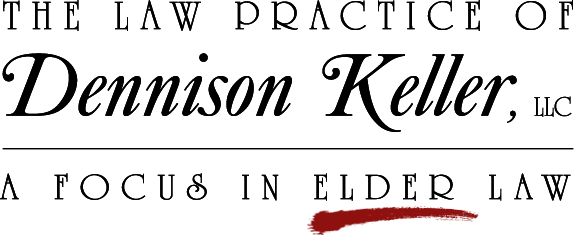What is a Last Will and Testament?
A Will is a document that does not take effect until the time of your death.
A Will is used to probate your estate and direct the distribution of any assets which you held in your name alone at the time of your death.
Please note: it is important for you to realize it will only distribute assets in your name alone and will not have any effect on joint assets or on assets that have beneficiary designations (such as Life Insurance) unless the designation indicates that it should be paid to your estate.
Generally, your Will allows you to do the following:
- Select the beneficiaries that will receive certain assets which you solely owned in your name at the time of your death.
- Nominate guardians to care for minor children.
- Name an Executor as the person responsible for handling your estate.
- Sell your real estate.
Generally, your Will does not effectively direct the disposition of any property which is jointly owned with another individual, particularly if that person has a right of survivorship. For jointly owned property in which there is a right of survivorship (such as joint bank accounts), the asset will pass automatically to the joint owner regardless of what your Will indicates.
In addition to jointly owned property, certain assets which have beneficiary designations are not disposed of by a Will.
For example, if you have previously filled out a beneficiary form for the following assets, the monies held in those accounts will not be distributed by your Will:
- Life insurance benefits
- Retirement benefits
- 401K plans
- IRA plans
- Annuities
In addition to a Will, there are several documents that are also very important to the estate planning process. A Will is only one of the estate planning documents that you need.
You also need:
- A Power of Attorney for finances
- Advance Directives (Health Power of Attorney and Living Will) which are effective during your lifetime.
In addition, if one of your estate planning goals is to avoid the probate process, a Will, although important as a backup document, is not likely to be the only document that you will need.
As was mentioned previously, property that is owned jointly will pass automatically without regard to the Will.
Therefore if you want your property to go somewhere other than to the joint owner, your wishes could be frustrated and defeated if assets are not properly titled.
As a result, it is extremely important that in addition to the documents prepared for your estate plan, you review your assets and title them correctly so that your estate plan works as you desire.
You should review your Will at least once every five years to make sure that it functions as you want. Often times circumstances may dictate that you change:
- whom you want to act as the Executor,
- whom you want to appoint as Guardian,
- where you want your property to go.
Also, you should review your Will or discuss with your attorney any major changes in your life. These would include things such as
- Purchasing a house
- Receiving money or inheritances
- Having children, etc.
- Receiving a diagnosis of a chronic care condition
Discussing these events with your elder law attorney will ensure that your Will matches your needs.
Let's Talk
If you don't have a Will in place, now is the time to act. An Elder Law attorney can help you prepare this critical document and ensure that your wishes are carried out. Contact a member of our team today to get started.
Let's Talk
Set up a consultation today.
Whether you're planning for your parents, your spouse, or even yourself, The Law Practice of Dennison Keller, LLC will meet you at the crossroads of legal and care advocacy to show you one clear path out of the maze and get you on the road toward your own peace of mind.




